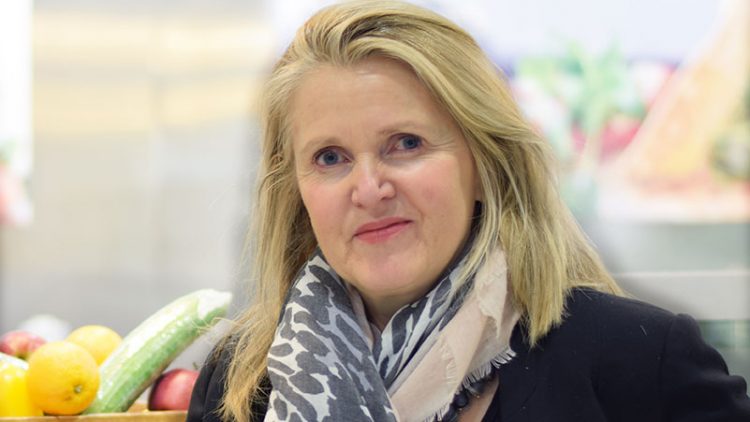
So it’s healthy eating week! I am going to be a little contrary here (me? really?) Healthy eating is so much simpler than we could have dreamed – concentrate on real food, things found in nature, things found growing on a tree or on a bush or in the ground. If you eat meat, invest and find the best quality (both for the poor animal – who might have lived a better life, been better looked after – and for you). Who knows if the rules of healthy eating will change? So stick with your instinct – you did know all along that real butter is no substitute for margarine whatever the “experts” are telling you was a glorified lab experiment. Use healthy eating week to connect with what makes sense – Local food, real food, plenty of veg. Of course we probably know, in our hearts that cake and bikkies, chips and other twaddle are probably not going to do us any good. Guideline is – would you feed that to a chimp (a near relative) and expect it to thrive? Use healthy eating week – not as a flash in the pan, but the start of something beautiful, a reformed relationship with food, who grows it, and a renewed respect for yourself and what you already know to be true.
Eat Real Food and the Rules of Food
In an ever more confusing discussion around nutrition and health, the elephant in the room that often gets overlooked, is that we just don’t have any simple manual that tells us actually what the rules of food might be (some elephant!). We’ve lost touch with what any foundation is, and we then cling to the latest food firework or nutritional nugget to give us any clear guideline at all – we are left with an unsatisfying feeling of what can we eat for Pete’s sake? One minute butter is the devil, the next fat is BACK. Often, the latest nutritional trendsetter is massively over fussy and faddy (in my humble option) tunnel visioned and only serving one particular system (like being a vegan, a paleo, a keto or whatever the tribe), leaving us feeling that we are somehow personally failing, or that we might be on the wrong boat. Another trick is to get on a bandwagon – like “The Gut Miracle Makeover”, or “Eat this – Get Rich NOW”, or “The Hard Cheese for Handsomeness Diet” , or “Fly to The Moon with the Bean Super Food System”. Super unrealistic, is another trend. How are we actually going to achieve making fermented raw goat’s nugget, Argon oil dairy free “cheese” (or some such pot of nutritional gold under some rainbow). Even if it helps, and it might, it is so unsustainable without changing the structure of how we live and work. In the few moments we have spare to think about putting food on the table for our families, how have we the time? Not to say that some of the information is useful or even not true, most of us just don’t live lives that permit this kind of detail.
Dare we say, it could well be a lot simpler than we can ever guess at?
We have abandoned our instincts and let “them” feed us. We know in our hearts that margarine can’t be good for us? Don’t we know that? It never goes off and that is our very first clue.
As for an eating strategy, there are bits of fundamental biochemistry that apply to most people (whatever your tribe). How we control insulin is one (a hormone), useful to know and easy to do. We can tap in to a few hacks – We can even take a few of the energy upgrades we might want to claim by concentrating on our nutrition, rather than it being an accident of time and shopping, but then it’s dead simple. Know the structure, and the strategy of what you are doing (top tip – nutrition is a four letter word – TIME) and then eat real food. If you want to add on a bit of fancy foot work, then make sure you are eating from a seasonal palette, and that you shop locally (less transport, more nutrients). Prioritise food more, but only if you want to have kick-ass energy to do something in your evening rather than watching the telly.
The reasons why, we in the UK, are so disassociated with real food, is complex – but it might have something to do with the fact that we were a very early industrialised nation (the first?). We quickly lost contact with the growers and providers of our food as urban sprawl spread, creating a huge stone and concrete barrier between us and the magic of growing food. We outsourced food to the potato vans of the Victorians, the eel and pie stands. Some people think the disassociation comes from our protestant work ethic culture and that food and the pleasure of eating is, well, a little “continental” – we don’t want to be flapping about and actually enjoying and savouring our food like the French and Italians – it all might be a bit bodily and you know what that might lead to! The British therefore are functional and practical about food and the less time engaged in bodily pleasure the better – let’s just fuel up and get on… Never mind the cost to ourselves and potentially our environment.
Engage with your family and how you eat food you have cooked yourself with real ingredients.
That is the tough news. Make time and prioritise food. Don’t over concentrate on what the food will give you, which food is high in what individual nutrient (or we would just eat oysters to get more zinc, – yuck). Concentrate rather on what you can give back to the food. Cook real fresh food, bought preferably from real people (like your local butcher and grocer – if you still have one). Changing how we eat, will change the way we shop (think of all that plastic packaging), and might even lead to something wonderful – like looking after our land and farmers. Now that really is something to dream big on. Vive La Revolution!
Share on:
Marketing Director
More from Lin Dickens